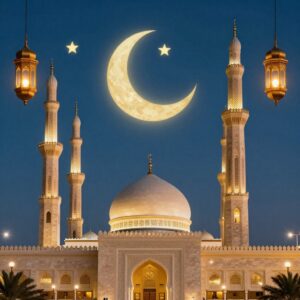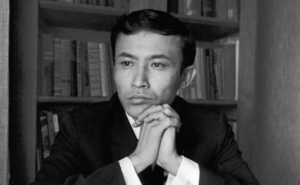Pakistan and Palestine’s unbreakable bond
United in culture, united in purpose
Palestine is a rich and diverse country with a long history and deep roots in land and traditions. It is located in the eastern Mediterranean region, comprising the Gaza Strip along the coast of the Mediterranean Sea, the West Bank in the west of the Jordan River, and parts of modern-day Israel.
For thousands of years, the state of Palestine has been a focal point of major historical events. Palestine, being a land of the three monotheistic faiths, Christianity, Islam, and Judaism, is also home to great religious sites including the Al-Aqsa Mosque, the Dome of the Rock Mosque in Jerusalem, the Tomb of Abraham in Hebron, the Church of the Holy Sepulchre and the Church of the Nativity in Bethlehem.
The unique heritage and customs of Palestine make it one of the most interesting and fascinating places, not only in the Middle East but in the whole world as well. “Palestine’s culture is a reflection of the diverse peoples who have lived there throughout history, including Arabs, Armenians, Canaanites, Europeans, Greeks, Hebrews, Romans, Samaritans, Turks, Nabateans, and nomadic tribes.”
One of the most notable aspects of Palestinian culture is its wonderful hospitality and cuisine. Palestine is known for its warm and welcoming people, reflected in their rituals and traditions, and its delicious and flavorful cuisine blending Mediterranean, Middle Eastern, and Bedouin influences. Some popular Palestinian dishes include falafel, hummus, tabouli, and kebabs.
Palestine boasts world-class educational institutions, such as An-Najah National University, Birzeit University in Ramallah, and the Arab American University in Jenin, that contribute to the country’s thriving intellectual and artistic communities. In spite of the difficult conditions that Palestinians are compelled to live in, there is still a wonderful energy that brings people together across the entire region, from Bethlehem to Jaba, from the mountains to the orchards.
Given that the vast majority of Palestinians are refugees living in the diaspora outside of historic Palestine, the main focus of the state is achieving recognition as a sovereign nation and securing the right of return for Palestinian refugees. Their main objective is to secure international recognition of the State of Palestine and to resolve the Israeli-Palestinian conflict through peaceful means.
In order to do so, the Palestinian leadership has sought to establish diplomatic relations with other countries around the world, particularly in the MENA region. It has also built its alliance with Pakistan to gain support for its cause.
The relationship between Palestine and Pakistan is one of mutual support, cooperation, and solidarity. Palestine has consistently expressed support for the Kashmir issue, and Pakistan has steadfastly supported the establishment of an independent Palestinian state and does not recognize the State of Israel in accordance with its pro-Palestinian philosophy.”
Since the establishment of diplomatic ties in 1988, Pakistan and Palestine have worked together in various international forums to support each other’s causes. Pakistan has consistently supported Palestine’s bid for statehood and full membership in the United Nations and has also provided economic and humanitarian assistance, including aid to Palestinian refugees, support for the Palestinian economy, and assistance in the reconstruction of the Gaza Strip following conflicts.
There is also a strong cultural and political connection between the two countries. Many Pakistanis identify with the Palestinian struggle and there is a significant Palestinian community in Pakistan. Regular high-level meetings and visits between leaders of the two countries have led to the development of a strong bilateral relationship. In fact, Palestine has an embassy in Pakistan and Pakistan also has a consulate general in Palestine.
Cultural exchanges, such as trading works of art, literature, and film, have also served to foster mutual understanding and enhanced ties between the two countries. Pakistan gives scholarships to 100 Palestinian students each year and around 50,000 Palestinians are graduates of Pakistani universities. Additionally, Palestinian doctors who graduated from Pakistani universities are working in both Palestine and Pakistan.
Furthermore, there has been an increase in military cooperation between the two countries, with Pakistan providing training to Palestinian security forces. The Palestinian Authority has stated its intention to deepen and broaden the scope of bilateral ties with Pakistan in order to maximize its impact for the benefit of the people of both countries.
The state of Palestine is characterized by its creativity, intelligence, and moderation. It is a civilized nation inhabited by civilized people who demonstrate great bravery and perseverance. Despite facing ongoing political and economic challenges, Palestinians have continued to maintain their cultural heritage and traditions, and have made significant contributions to fields such as arts, literature, and science.
Pakistan can play an important role in the United Nations by gathering support for the Palestine cause and highlighting Israel’s human rights violations in the General assembly. Pakistan is also set to increase scholarships to Palestinian students in subjects besides engineering and medicine. A dual degree agreement between Pakistani and Palestinian universities will also be helpful to support the brilliant students of Palestine. Such academic exchanges and training of students, academia, and professionals can bring the two nations together. There is also a huge potential for exploring projects like Telehealth between the two nations, where doctors from each country will treat patients online. Overall, Pakistan is making concentrated efforts toward the resolution of the Palestine conflict with an immediate sense of urgency as millions of livelihoods depend on it.


